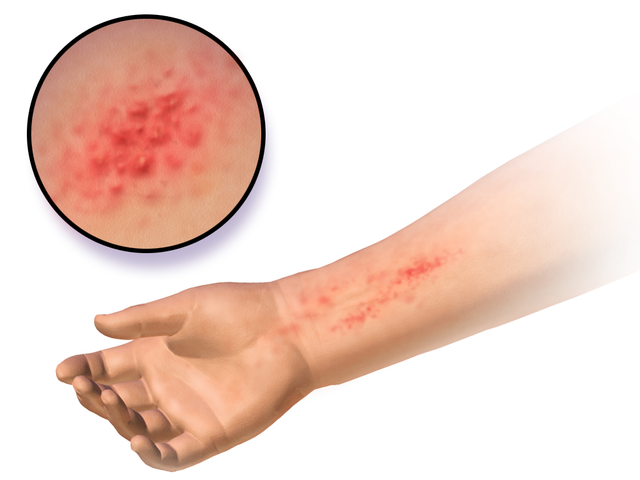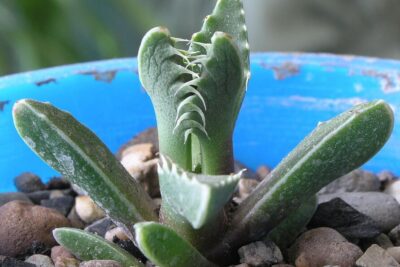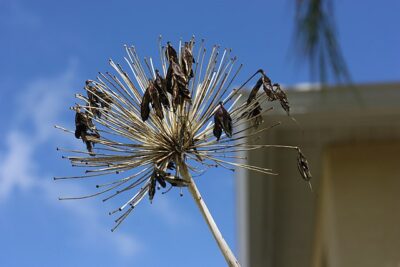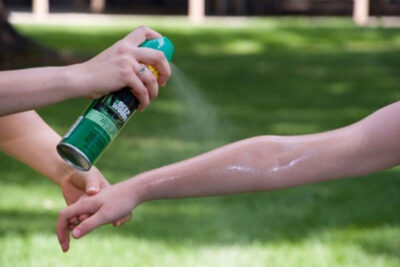
Can Succulents Trigger Allergies in Certain Individuals?

Succulents have become increasingly popular in recent years, adorning homes, offices, and even wedding decorations. These plants are known for their unique, fleshy leaves and ability to thrive in low-water conditions. While succulents are generally considered low-maintenance and non-toxic, there have been reports of individuals experiencing allergies when exposed to certain succulent species.
We will explore the possibility of succulents triggering allergies in certain individuals. We will examine the common allergens found in succulents, potential symptoms of succulent allergies, and ways to minimize the risk of allergic reactions. Additionally, we will discuss the importance of proper care and maintenance to ensure a healthy living environment for succulent owners. Whether you are a succulent enthusiast or someone considering bringing succulents into your space, understanding the potential allergenicity of these plants is crucial.
- Yes, succulents can trigger allergies in certain individuals
- Some people may be allergic to the pollen or sap of succulents
- Allergic reactions can include sneezing, itching, and watery eyes
- Avoiding direct contact with succulent plants can help prevent allergic reactions
- Keeping succulents in well-ventilated areas can reduce the risk of triggering allergies
- Regularly cleaning and dusting succulent plants can minimize the release of allergens
- Choosing succulent species with lower pollen production can be beneficial for allergy sufferers
- Having good indoor air quality can also help reduce the impact of succulent allergies
- If allergic reactions persist, consulting a doctor or allergist is recommended
- Overall, while succulents can trigger allergies in some individuals, taking preventive measures can minimize the risk
- Frequently Asked Questions
Yes, succulents can trigger allergies in certain individuals
Allergies are a common occurrence in many individuals, and certain plants can be a trigger for these allergic reactions. While succulents are generally low-maintenance and known for their ability to thrive in various environments, it is important to note that they can indeed cause allergies in certain individuals.
Succulents produce pollen, which is a common allergen for many people. When the plants release their pollen into the air, it can be inhaled by individuals who are sensitive or allergic to it. This can lead to symptoms such as sneezing, congestion, itchy or watery eyes, and even respiratory issues in severe cases.
Furthermore, some succulents may also have compounds in their sap or leaves that can cause skin irritation or allergic reactions upon contact. These reactions can range from mild redness and itching to more severe rashes or blisters, depending on the individual's sensitivity.
If you suspect that succulents might be triggering your allergies, it is essential to identify the specific type of succulent that you are allergic to. This can be done through allergy testing or by observing your symptoms after exposure to different types of succulents.
 Protecting Your Garden: Understanding if Rabbits Will Eat Succulents
Protecting Your Garden: Understanding if Rabbits Will Eat SucculentsCommon allergenic succulents
While it is impossible to create an exhaustive list of succulents that can trigger allergies, some common varieties have been reported to cause allergic reactions in individuals. These include:
- Aloe vera: Known for its medicinal properties, aloe vera can cause skin irritation or dermatitis in some individuals.
- Agave: This popular succulent can cause contact dermatitis, with symptoms such as redness, itching, and blisters.
- Euphorbia: Many species of euphorbia, including the popular "crown of thorns," can cause skin irritation upon contact.
It is important to note that individual sensitivities can vary, and what may cause allergies in one person may not affect another. If you have a known allergy to succulents or suspect that you might be allergic, it is advisable to avoid handling or being in close proximity to these plants.
If you still want to enjoy the beauty of succulents but are concerned about allergies, there are some steps you can take to minimize your risk. Keeping your succulents well-maintained and regularly cleaning their leaves can help reduce the amount of pollen and potential allergens in the air. Additionally, wearing gloves when handling succulents and washing your hands thoroughly afterwards can help prevent skin irritation or allergic reactions.
Remember, if you experience severe allergic reactions or difficulty breathing after exposure to succulents, it is important to seek medical attention immediately. Allergies can vary in severity, and it is best to consult a healthcare professional for proper diagnosis and treatment.
Some people may be allergic to the pollen or sap of succulents
While succulents are generally known for being low-maintenance and hypoallergenic plants, it is important to note that some individuals may still experience allergies when exposed to certain aspects of these plants. In particular, the pollen and sap of succulents can trigger allergic reactions in susceptible individuals.
Pollen allergies
For individuals with pollen allergies, succulents that produce flowers may pose a potential risk. The pollen from these flowers, just like any other plant, can cause symptoms such as sneezing, runny nose, itchy eyes, and even difficulty breathing in some cases. It is important to identify which succulents are known to produce high amounts of pollen and avoid keeping them indoors or in close proximity to allergy-prone individuals.
 Causes of Death Blooms in Succulent Plants: A Comprehensive Analysis
Causes of Death Blooms in Succulent Plants: A Comprehensive AnalysisSap allergies
Succulents are known for their unique ability to store water in their leaves, stems, or roots. This water-rich sap can be irritating to the skin and mucous membranes of certain individuals, causing contact dermatitis or allergic reactions. It is important to handle succulents with care, especially if you have sensitive skin or a history of skin allergies. Wearing gloves when pruning or repotting succulents can help minimize the risk of coming into contact with the sap.
Common succulents that may trigger allergies
While allergies to succulents are relatively rare compared to other plants, there are a few common succulents that may cause allergic reactions in some individuals:
- Agave: Some species of Agave, especially those with sharp spines, can cause skin irritation and allergies upon contact.
- Aloe vera: Although Aloe vera is widely known for its soothing properties, some individuals may still develop allergic reactions when exposed to its sap. It is important to perform a patch test before using Aloe vera products on the skin.
- Euphorbia: Certain species of Euphorbia, such as Euphorbia tirucalli (pencil cactus), can release a milky sap that can cause skin irritation and allergic reactions.
If you suspect that you may have an allergy to succulents, it is recommended to consult with a healthcare professional or allergist. They can help determine the specific triggers and provide appropriate advice or treatment options to manage your allergies.
Overall, while succulents are generally safe and non-allergenic for most individuals, it is important to be aware of the potential allergenic properties of their pollen and sap. By taking necessary precautions and avoiding specific succulents that may trigger allergies, you can still enjoy the beauty and benefits of these amazing plants.
Allergic reactions can include sneezing, itching, and watery eyes
For many people, succulents are a popular choice for indoor and outdoor plants due to their low maintenance and unique appearance. However, it is important to note that while succulents are generally considered non-allergenic, they can still trigger allergies in certain individuals.
Common allergic reactions to succulents include sneezing, itching, and watery eyes. These symptoms are often caused by an allergic reaction to the pollen or sap of the succulent plant. It is important to note that not everyone will have the same reaction to succulents, and the severity of the allergies can vary from person to person.
 Using Neem Oil for Pest Control on Succulents: A Natural Solution
Using Neem Oil for Pest Control on Succulents: A Natural SolutionIf you suspect that you may be allergic to succulents, it is recommended to take precautions when handling or being around these plants. Wearing gloves and long sleeves can help minimize direct contact with the plant's sap or pollen. Additionally, keeping succulents in well-ventilated areas can help reduce the concentration of allergens in the air.
In some cases, individuals may be more sensitive to certain species of succulents. For example, the common jade plant (Crassula ovata) has been reported to cause allergic reactions in some people. It is always a good idea to research specific succulent species and their potential allergenic properties before bringing them into your home or garden.
If you are experiencing persistent allergic reactions to succulents, it is advisable to consult with an allergist or healthcare professional. They can help determine the specific cause of your allergies and provide appropriate treatment options. Allergy testing may also be recommended to identify any underlying allergies that could be triggered by succulents or other environmental factors.
While succulents are generally considered non-allergenic, they can still trigger allergies in certain individuals. It is important to be aware of the potential allergenic properties of specific succulent species and take necessary precautions if you suspect you may be allergic. Consulting with a healthcare professional can help identify the cause of your allergies and provide appropriate management strategies.
Avoiding direct contact with succulent plants can help prevent allergic reactions
Allergies and Succulent Plants
While succulent plants are generally known for their low maintenance and beauty, it is important to note that some individuals may experience allergic reactions when coming into contact with these plants. Although rare, it is crucial to be aware of the potential allergens present in succulents and take necessary precautions to prevent any allergic reactions.
 Identifying Scale Infestation on Succulents: A Guide for Plant Lovers
Identifying Scale Infestation on Succulents: A Guide for Plant LoversPotential Allergens in Succulent Plants
There are various allergens that can be found in succulent plants, including:
- Latex: Some succulents, such as the popular Aloe vera, contain latex. Latex is a known allergen that can cause skin irritation, itching, and redness in susceptible individuals.
- Pollen: Certain succulent plants produce pollen, which can trigger allergies in people who are sensitive to it. Symptoms may include sneezing, watery eyes, and nasal congestion.
- Sap: The sap found in some succulent plants, like Euphorbia species, can cause skin irritation and allergic reactions, ranging from mild redness to more severe dermatitis.
Preventing Allergic Reactions
To minimize the risk of allergic reactions from succulent plants, consider the following precautions:
- Avoid direct contact: If you know you are allergic to latex or have sensitivities to pollen or plant sap, it is best to avoid touching succulent plants directly. Wear gloves when handling them or use tools for maintenance.
- Proper hygiene: After handling succulents, make sure to wash your hands thoroughly with soap and water to remove any potential allergens.
- Choose hypoallergenic varieties: If you have known allergies to certain substances, opt for succulent varieties that are less likely to trigger allergic reactions, such as those with lower latex content or non-pollen-producing species.
- Keep plants well-maintained: Regularly remove dead leaves or flowers from your succulents to prevent the accumulation of potential allergens.
 The Causes of Succulent Leaf Loss Upon Touch: A Comprehensive Guide
The Causes of Succulent Leaf Loss Upon Touch: A Comprehensive GuideConsulting a Healthcare Professional
If you experience persistent or severe allergic symptoms after coming into contact with succulent plants, it is recommended to consult a healthcare professional. They can evaluate your symptoms, provide appropriate treatment, and offer personalized advice to manage your allergies effectively.
Keeping succulents in well-ventilated areas can reduce the risk of triggering allergies
When it comes to indoor plants, succulents have become quite popular due to their low maintenance and unique appearance. However, if you or someone in your household suffers from allergies, you may be wondering if succulents can trigger allergic reactions.
The good news is that succulents are generally considered hypoallergenic plants. This means that they are less likely to cause allergies compared to other types of plants. Most succulents produce minimal pollen and don't release it into the air, which is the main culprit behind seasonal allergies.
However, it's important to note that some individuals may still be sensitive to certain components of succulents, such as their sap or the dust that accumulates on their leaves. These sensitivities can lead to allergic reactions in susceptible individuals.
Identifying Allergies to Succulents
If you suspect that succulents may be triggering allergies in certain individuals, it's essential to be able to identify the symptoms. Common signs of allergies to succulents may include:
- Itchy or watery eyes
- Sneezing or a runny nose
- Skin rashes or hives
- Coughing or wheezing
If you or someone in your household experiences any of these symptoms when exposed to succulents, it's advisable to consult with a healthcare professional or an allergist for proper diagnosis and treatment.
 Are Succulent Plants Safe for Cats to Nibble On?
Are Succulent Plants Safe for Cats to Nibble On?Reducing the Risk of Allergic Reactions
If you have identified succulents as a potential trigger for allergies, there are steps you can take to minimize the risk:
- Choose hypoallergenic succulents: Opt for succulents with less sap or those known to cause fewer allergic reactions, such as Echeveria or Haworthia.
- Keep succulents in well-ventilated areas: Proper air circulation can prevent the accumulation of dust and reduce the chances of triggering allergies.
- Regularly clean and dust succulent leaves: Wiping the leaves with a damp cloth can help remove any potential allergens that may have settled on them.
- Wear gloves when handling succulents: If you are particularly sensitive to the sap of certain succulents, wearing gloves can provide a protective barrier.
By following these precautions, you can enjoy the beauty of succulents while minimizing the risk of allergic reactions in susceptible individuals.
Remember, everyone's allergies are different, so it's crucial to pay attention to how your body reacts to succulents and take appropriate measures accordingly.
Regularly cleaning and dusting succulent plants can minimize the release of allergens
The Importance of Regular Cleaning
For individuals who have allergies, it is essential to maintain a clean and dust-free environment. This applies not only to their living spaces but also to the plants they choose to keep. Succulents, known for their low maintenance and aesthetic appeal, are no exception to this rule.
Regular cleaning and dusting of succulent plants can significantly reduce the release of allergens into the air. By removing dust and pollen from the leaves, you can create a healthier environment for yourself and others who may be sensitive to these allergens.
 Causes of White Film on Succulent Leaves: A Comprehensive Guide
Causes of White Film on Succulent Leaves: A Comprehensive GuideMinimizing Allergens in Succulents
Here are a few tips to help minimize allergens in succulent plants:
- Wipe the leaves: Use a soft, damp cloth to gently wipe the leaves of your succulents. This will remove any accumulated dust or pollen that could trigger allergies.
- Keep them away from open windows: While succulents thrive in sunlight, it's best to keep them away from open windows or doors. This will prevent pollen from outdoor plants from entering your living space and settling on your succulents.
- Consider air purifiers: If you have severe allergies, using an air purifier in the room where your succulents are located can help remove airborne allergens.
By incorporating these practices into your succulent care routine, you can enjoy the beauty of these plants without worrying about triggering allergies.
Choosing succulent species with lower pollen production can be beneficial for allergy sufferers
Allergies can be a real nuisance, especially for those who love plants and gardening. If you're an allergy sufferer, you may have wondered if succulents can trigger your symptoms. The good news is that compared to other plants, succulents generally have lower pollen production, making them a better choice for individuals with allergies.
What are succulents?
Succulents are plants that have thick, fleshy leaves and stems, which allow them to store water. This adaptation helps them survive in arid conditions. Some popular succulent species include aloe vera, echeveria, and haworthia.
 Uncovering Common Causes of White Spots on Succulents
Uncovering Common Causes of White Spots on SucculentsPollen production in succulents
While succulents do produce pollen, they typically have a lower pollen count compared to other types of plants. This is because succulents have evolved to rely more on other methods of reproduction, such as vegetative propagation or pollination by insects, rather than solely relying on wind pollination.
Choosing low-pollen succulent species
If you're concerned about allergies, it's important to choose succulent species that have lower pollen production. Some succulents that are known to have low-pollen include haworthia, echeveria, and sedum. These species are less likely to trigger allergic reactions in sensitive individuals.
Tips for minimizing allergies
Even though succulents have lower pollen production, it's still a good idea to take some precautions if you're prone to allergies. Here are a few tips:
- Place your succulents away from windows and doors, where pollen can easily enter your home.
- Wipe down the leaves of your succulents regularly to remove any pollen or dust that may have settled on them.
- Consider using air purifiers or filters to reduce airborne allergens in your home.
- Wear a mask or take allergy medication if you're planning to work with your succulents for an extended period.
Final thoughts
 Is the Firestick Succulent Toxic to Pets and Humans?
Is the Firestick Succulent Toxic to Pets and Humans?Succulents can be a great choice for individuals with allergies due to their lower pollen production. By selecting low-pollen species and taking some preventive measures, you can enjoy the beauty of succulents without worrying about triggering your allergies.
Having good indoor air quality can also help reduce the impact of succulent allergies
When it comes to indoor plants, succulents are a popular choice for many homeowners. With their unique and vibrant appearance, they can liven up any space. However, for some individuals, succulents can trigger allergies and cause discomfort. It's important to understand the potential allergens associated with succulents and how to minimize their impact on indoor air quality.
Allergens in Succulents
Succulents produce pollen, which is a common allergen. The pollen can be released into the air and inhaled by individuals who are sensitive or allergic to it. This can lead to symptoms such as sneezing, congestion, itchy eyes, and a runny nose. Additionally, succulents can also produce sap, which contains compounds that can cause skin irritation or allergic reactions in some people.
Reducing Allergens from Succulents
To minimize the impact of succulent allergies, here are some tips:
- Choose Low-Pollen Varieties: Opt for succulents that are known to produce lower amounts of pollen. This can help reduce the chances of triggering allergies in sensitive individuals.
- Keep Succulents Clean: Regularly dust off the leaves of your succulents to remove any accumulated pollen or other allergens. Wiping them down with a damp cloth can also help remove dust and potential irritants.
- Proper Ventilation: Ensure good air circulation in the room where your succulents are located. This can help disperse any allergens in the air and reduce the concentration of potential irritants.
- Consider Air Purifiers: Investing in an air purifier with a HEPA filter can help capture and remove airborne allergens, including pollen, from your indoor environment.
Importance of Indoor Air Quality
 Understanding the Causes of Brown Tips on Fuzzy Succulent Leaves
Understanding the Causes of Brown Tips on Fuzzy Succulent LeavesHaving good indoor air quality is crucial for overall health and well-being. Allergens present in the air can worsen pre-existing respiratory conditions, such as asthma or allergies. By taking steps to reduce allergens from succulents and maintaining clean indoor air, individuals can create a more comfortable living environment.
Remember, if you or someone in your household experiences severe allergic reactions or discomfort from succulents or any other plants, it's best to consult with a healthcare professional to determine the appropriate course of action.
If allergic reactions persist, consulting a doctor or allergist is recommended
It is not uncommon for individuals to experience allergic reactions to various plants and flowers. While most people enjoy the beauty and benefits of having succulents in their homes, some may wonder if these popular plants can trigger allergies in certain individuals.
The truth is, succulents are generally not known to be highly allergenic. Unlike some other plants that produce high levels of pollen, succulents have a lower likelihood of causing allergic reactions. This is because succulents typically have fleshy leaves and stems that store water, which means they do not rely heavily on producing large amounts of pollen to reproduce.
However, it is important to note that allergies can vary from person to person. While succulents are generally considered low-allergenic, there may still be individuals who are sensitive to certain compounds or substances found in these plants. These individuals may experience mild to moderate allergic reactions when exposed to succulents.
If you suspect that succulents may be triggering allergic reactions in you or someone you know, it is recommended to consult with a doctor or allergist. They can conduct tests to determine if succulents are the cause of the allergic reactions or if there are other factors at play.
In the meantime, here are a few tips to minimize potential allergic reactions:
- Keep succulents in well-ventilated areas to reduce the concentration of any potential allergens.
- Wear gloves or use tools when handling succulents to avoid direct contact with the plant's sap or other irritants.
- Regularly clean and dust the leaves of your succulents to remove any potential allergens.
- Consider wearing a mask or using a nasal spray if you experience respiratory symptoms when near succulents.
Remember, it is always best to seek professional medical advice if you have concerns about potential allergies. Your doctor or allergist can provide personalized guidance and recommend appropriate measures to manage your allergies effectively.
Overall, while succulents can trigger allergies in some individuals, taking preventive measures can minimize the risk
It is no secret that succulents have gained immense popularity in recent years. These low-maintenance plants add a touch of beauty to any space, making them a favorite among gardening enthusiasts. However, it is important to note that succulents can trigger allergies in certain individuals.
While succulents are generally considered non-allergenic, some people may develop allergic reactions when exposed to certain species. This is primarily due to the presence of airborne pollen or the sap of the plants. The most common allergic reactions to succulents include skin rashes, itching, nasal congestion, and respiratory issues.
It is crucial to identify the specific succulent species that may trigger allergies in order to take necessary precautions. Some succulents, such as aloe vera, have a higher likelihood of causing allergic reactions due to their sap. Others, like Echeveria and Sedum, are less likely to cause allergies.
Preventive Measures to Minimize the Risk
To enjoy the beauty of succulents without suffering from allergies, here are some preventive measures to consider:
- Choose Allergy-Friendly Succulents: Opt for succulent species that are less likely to cause allergic reactions. Research and consult with experts about the specific species that are considered safe for individuals prone to allergies.
- Keep Succulents Clean: Dust and debris can accumulate on succulent leaves, triggering allergies. Regularly clean the leaves with a soft cloth or sponge to remove any potential allergens.
- Place Succulents in Well-Ventilated Areas: Proper airflow can help minimize the concentration of allergens in the air. Ensure that your succulents are placed in well-ventilated areas to reduce the risk of triggering allergies.
- Use Protective Measures: If you are particularly sensitive to succulents, consider wearing gloves and a mask while handling or pruning them. This can help minimize direct contact with allergens.
- Keep an Eye on Symptoms: If you suspect that you may be allergic to succulents, pay attention to any symptoms that arise after exposure. If symptoms persist or worsen, it is advisable to consult with a healthcare professional.
By following these preventive measures, individuals prone to succulent allergies can still enjoy the beauty of these plants while minimizing the risk of allergic reactions.
It is important to note that everyone's sensitivity to allergens differs, and what may trigger allergies in one person may not affect another. If you have a known allergy to plants or have experienced allergies in the past, it is always best to exercise caution and consult with a healthcare professional before introducing succulents into your space.
Frequently Asked Questions
1. Can succulents trigger allergies in certain individuals?
Yes, some people may be allergic to certain succulent plants. The most common allergens are the sap and pollen of certain species.
2. How can I identify if I have an allergy to succulents?
If you experience symptoms like itching, redness, or a rash after coming into contact with succulents, you might have an allergy. Consult with a medical professional for a proper diagnosis.
3. Are all succulents allergenic?
No, not all succulents are allergenic. While some species may cause allergies in certain individuals, many others are considered hypoallergenic and are less likely to trigger allergic reactions.
4. How can I manage succulent allergies?
If you have an allergy to succulents, it is best to avoid direct contact with the plants. Wearing gloves, long sleeves, and using barrier creams can help minimize the risk of allergic reactions. Consulting with an allergist can provide further guidance on managing allergies.
If you want to read more articles similar to Can Succulents Trigger Allergies in Certain Individuals?, you can visit the Pests and Diseases category.






You Must Read